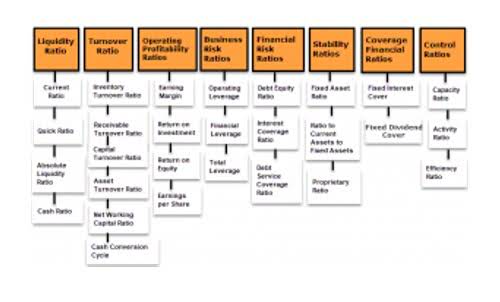
Not only is nonprofit bookkeeping different from its for-profit counterpart, but a bookkeeper is just one of the professionals you should have working on your organization’s finances. Let’s begin by clearing up these points of confusion and ensuring we’re all on the same page about what bookkeeping is. Many nonprofits are facing the decision of whether to accept digital assets or miss the chance of substantial donations as digital assets become more popular and easier to access. I am excited about collaborating with you and advancing the section for another year.
Governmental Accounting II and Nonprofit Accounting
To effectively manage their finances, nonprofit organizations need to be well-versed in financial statements and reporting, revenue management and fundraising, expenses and cash flow, and accountability and compliance. In addition, they must implement strategic accounting practices and utilize proper accounting software to ensure financial health. Staying informed about budget planning and frequently asked questions regarding nonprofit accounting can help an organization successfully navigate the complexities of their financial government and nonprofit accounting management. This module provides a comprehensive understanding of financial aspects in nonprofit organizations. We will create journal entries for basic nonprofit transactions and prepare financial statements like the Statement of Activities and Statement of Financial Position from trial balances. Additionally, we will get a better understanding of FASB’s nonprofit requirements as they relate to reporting expenses by function and nature as well as the requirements for the components of a nonprofit’s Statement of Cash Flow.
Regulatory Requirements
For more than 60 years, Accounting for Governmental & Nonprofit Entities has been the leader in the market. It is a comprehensive governmental and not-for-profit accounting text written for students who will be auditing and working in public and not-for- profit sector entities. This edition continues to provide a large and innovative set of instructional support materials prepared and tested in the classroom. The result is a relevant and accurate text that includes the most effective instructional tools.
- Staying informed about budget planning and frequently asked questions regarding nonprofit accounting can help an organization successfully navigate the complexities of their financial management.
- If you have a nonprofit organization, working toward making the world a better place is likely your top priority.
- This statement allows stakeholders to evaluate the organization’s ability to generate funds and use the revenue effectively to support its mission.
- Incorporating these elements into a nonprofit’s operations helps create a solid foundation for maintaining accountability, adhering to transparency standards, and complying with applicable laws and regulatory requirements.
- In the case of government, hold your politicians and governmental employees responsible for their actions.
More Money Blues
We will identify users of nonprofit financial statements and the procedures for obtaining 501(c)(3) tax-exempt status. We will further our understanding of the requirements and steps for 501(c)(3) qualification as well as identify potential events leading to the loss of tax-exempt status. Additionally, we will learn about the major components in the Statement of Financial Position. Lastly, we will identify the two components of nonprofit net assets and differentiate between conditional and unconditional promises to give.
What features should I look for in non-profit accounting software?
Nevertheless, understanding what fund accounting is and how it works is the only way to confidently look at the financial publications that governmental and nonprofit organizations publish each year. Non-profits follow fund accounting, which helps them not only to ensure donor restrictions are followed but also to maintain transparency in their financial reports. They organize and record receipts, including donations and in-kind contributions, and keep track of disbursements, accounts receivable, and payroll. It’s essential for non-profits to comply with Generally Accepted Accounting Principles (GAAP) to ensure accurate financial reporting. Nonprofit organizations in the United States are subject to various regulatory requirements to maintain their tax-exempt status. The Internal Revenue Service (IRS) is responsible for overseeing these organizations and ensuring they comply with applicable tax laws.
Subscribe for Educational Content

Volunteers often make up a large part of a nonprofit’s staff and may leave an organization with short notice, which can cause recordkeeping gaps. When evaluating an organization’s financial performance, it is crucial to analyze both the budget and actual financial data. Regular budget reviews can help identify areas where there may be discrepancies between projections and actual results, enabling timely adjustments and informed decision-making.
Brief Contents
Accounts Payable is a liability account found on the Balance Sheet or Statement of Financial Position that represents money owed to another party. One of the more fundamental and important processes in the monthly close is the reconciliation of bank accounts. If you would like to submit a volume proposal for Research in Governmental and Nonprofit Accounting please contact the Series Editor or the Commissioning Editor.
Textbook Rental (150 Days Access)
Builds financial solutions to scale for large domestic and international disaster response and recovery operations. Pearson+ offers instant access to eTextbooks, https://www.bookstime.com/ videos and study tools in one intuitive interface. Students can access Pearson+ through a subscription or their MyLab or Mastering course.

To make nonprofit accounting more efficient, organizations can leverage accounting software specifically designed for nonprofits. These software solutions help automate and streamline the accounting process while ensuring compliance with relevant laws and regulations. Some popular nonprofit accounting software options include Aplos, QuickBooks Nonprofit Edition, and NetSuite’s Nonprofit Financial Management Solution. The operating budget is a financial plan that outlines the expected revenues and expenses for an organization during a specific period, typically a fiscal year. It includes all program costs, which are the direct expenses incurred in carrying out the organization’s mission, as well as general administrative expenses and fundraising costs.

In the world of nonprofit accounting, organizations have to follow specific rules, regulations, and tax requirements. Bookkeeping and accounting are crucial aspects to ensure financial accuracy and transparency. Nonprofit accounting is a unique process that allows nonprofit organizations to plan, record, and report on their finances. It differs from for-profit accounting in several ways, including the focus on tracking and reporting individual funds and the way revenues and expenses are categorized. Understanding the fundamentals of nonprofit accounting is essential for organizations to achieve their missions, maintain compliance, and ensure financial transparency. This module introduces the fundamental aspects of nonprofit entities, including their definition and the standards-setting body for nonprofit accounting principles.
Leave a Reply